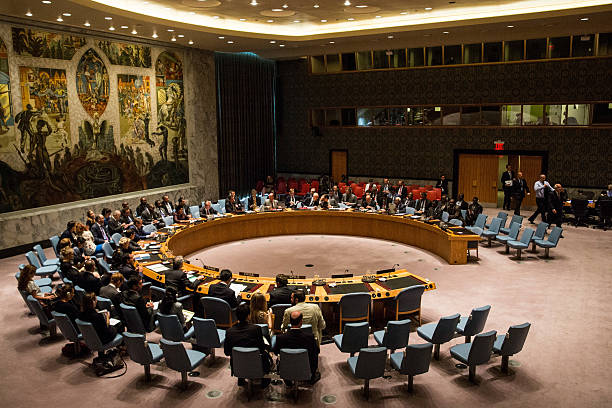On Wednesday, Russia vetoed a UN Security Council resolution to extend sanctions against Mali. The resolution, which was submitted jointly by France and the United Arab Emirates, would have extended the sanctions for another year until August 31, 2024. The resolution also extended the mandate of the UN expert group until September 30, 2024.
The sanctions were imposed in 2017 in the form of asset freezes and travel bans against eight Malians blacklisted by the UN for threatening peace in Mali. The resolution was supported by 13 out of 15 members of the UNSC. China abstained from voting.
Although Russia agreed to the latest one-year extension of the sanctions, it demanded the immediate cancellation of the activities of the group of UN experts monitoring the introduction of sanctions measures. Expert reports are an important source of information about the situation in Mali. It is evident that by canceling the mandate of the group, Russia wants to prevent the publication of unpleasant truths about the actions of the Russian Wagner group in Mali.
Relations between the UN and Mali have deteriorated rapidly since a 2020 coup that brought a military junta to power in the African country. In June, the military government called for the immediate withdrawal of UN peacekeepers. Instead, the Malian junta got closer to Russia and allowed mercenaries from Wagner’s group to operate in the country.
The veto by Russia is a setback for the UN’s efforts to bring peace to Mali. It is also a reminder of the challenges that the UN faces in dealing with countries that are backed by powerful veto-wielding members of the Security Council.
The reform of the UN and the Security Council therefore seems more urgent than ever. The current system is not working, and it is clear that it needs to be changed if the UN is to be effective in addressing the world’s most pressing problems.









